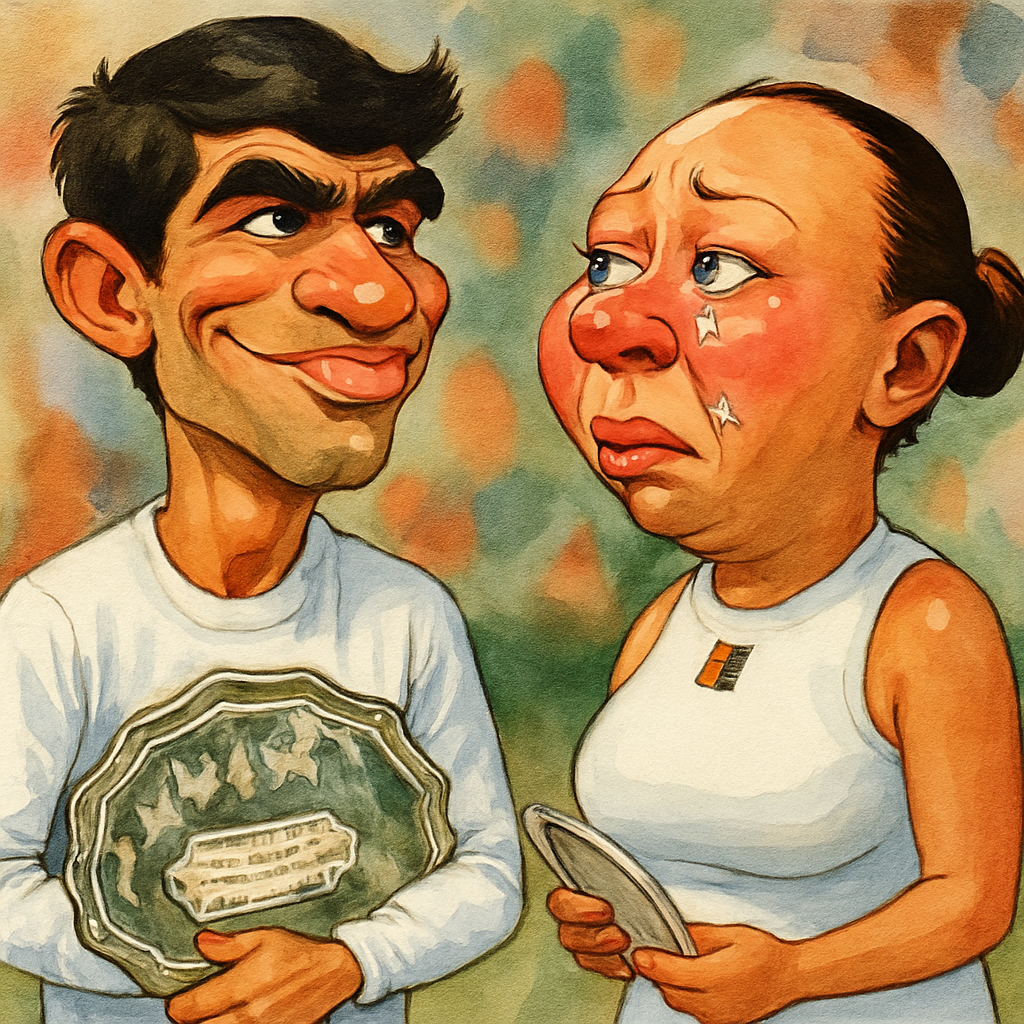LONDON — Nearly four times as much online abuse aimed at players during the first half of Wimbledon was detected compared to the same period in 2024, according to data shared exclusively with the BBC. The findings highlight a troubling rise in toxic behavior directed at athletes on social media platforms during one of tennis’s most prestigious tournaments.
A Sharp Increase in Online Abuse
Monitoring firms tracking social media activity during Wimbledon’s first week reported a staggering 300% increase in abusive messages targeting players compared to last year. The data, analyzed by AI-driven moderation tools, identified hate speech, threats, and personal attacks across platforms like X (formerly Twitter), Instagram, and Facebook. Experts attribute the surge to heightened polarization around high-profile matches and the growing visibility of athletes online.
"The volume of abuse is alarming," said Dr. Emily Carter, a digital ethics researcher at the University of London. "Players are facing not just criticism of their performance but deeply personal attacks, often tied to their race, gender, or nationality. This goes beyond competitive banter—it’s outright harassment."
Who Is Being Targeted?
The data reveals that female players and athletes from minority backgrounds faced disproportionate abuse. Key findings include:
- Female players received 65% more abusive messages than their male counterparts.
- Players of color were targeted in 40% of all hate speech detected.
- British players faced heightened scrutiny, with local fans often directing frustration at underperformers.
One unnamed British player, eliminated in the early rounds, was subjected to over 500 abusive tweets in a single day. A Wimbledon spokesperson condemned the behavior, stating, "No athlete should endure such vitriol for competing in a sport they love."
The Role of Social Media Platforms
While platforms like X and Instagram have pledged to combat online abuse, enforcement remains inconsistent. Wimbledon’s partnership with AI moderation firm Sentinel helped flag thousands of harmful posts, but many slipped through due to algorithmic limitations. A Meta spokesperson acknowledged the challenge, telling the BBC, "We’re investing in better detection tools, but the scale of the problem requires collective action from sports bodies, fans, and tech companies."
Case Study: A Player’s Experience
One top-20 player, who requested anonymity, shared screenshots of abusive messages they received after a controversial line call. "People called me a cheat, threatened my family, and even wished injury on me," the player said. "It’s hard to stay focused when you’re constantly bombarded with hate."
What’s Being Done?
Wimbledon has intensified its efforts to protect players, including:
- Expanding its "zero-tolerance" policy to include stricter reporting mechanisms.
- Working with the ATP and WTA to lobby social media companies for faster takedowns.
- Offering mental health support to players affected by online harassment.
The All England Club’s CEO, Sally Bolton, emphasized the need for accountability: "We won’t let a minority of abusive voices overshadow the spirit of Wimbledon. Players deserve respect, not ridicule, for their efforts on the court."
Looking Ahead
As Wimbledon progresses, the focus remains on whether anti-abuse measures will curb the trend. Tennis legend Martina Navratilova weighed in, urging fans to "support players with passion, not poison." With the 2024 Olympics approaching, the sport faces mounting pressure to safeguard athletes from the dark side of digital fandom.
The data serves as a stark reminder: while tennis celebrates excellence, the online world often mirrors its worst instincts. For players, the fight for fairness isn’t just on the grass—it’s in the digital arena too.

